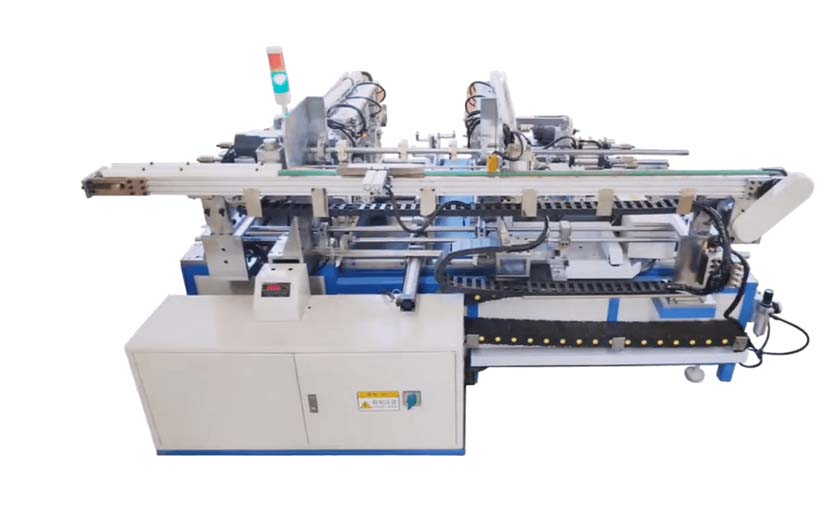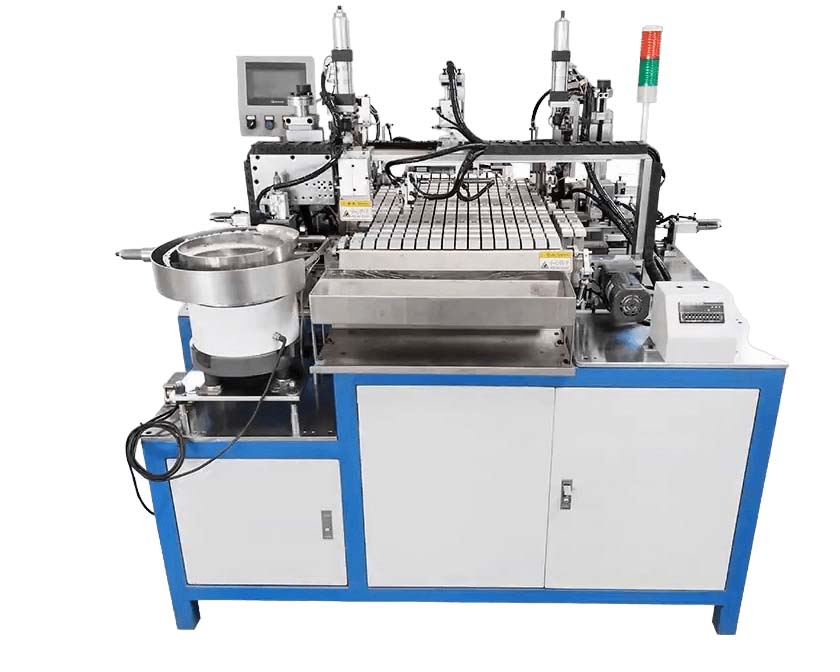The Current State of China's Automated Electric Heating Element Machinery and Smart Assembly Line Industry
In recent years, China's industrial automation technology has developed rapidly, especially in the field of electric heating element machinery and smart assembly lines, which has made remarkable progress. As a critical component of industrial manufacturing, electric heating elements are widely used in home appliances, automotive, aerospace, food processing, and many other industries, generating enormous market demand. With advancements in new material technology, intelligent control systems, and digital technology, the manufacturing processes of electric heating elements are increasingly becoming automated and intelligent, driving transformation and upgrading across the entire industry.
1. Technological Advancements Driving Industry Transformation
The electric heating element manufacturing sector has traditionally relied on manual operations, leading to low production efficiency and challenges in quality control. However, with the introduction of automated equipment and intelligent control technology, this situation has significantly improved. Through advanced automation equipment, companies can achieve full-process automation from raw material processing to final product assembly, greatly improving production efficiency and the consistency of product quality.
Building on this foundation, the application of smart assembly lines has made the production of electric heating elements more efficient and precise. Intelligent equipment, combined with machine vision, sensor technology, and AI algorithms, allows for real-time monitoring and adjustment at every stage of production. This real-time response capability not only drastically reduces product defect rates but also enables companies to flexibly meet the needs of customized production for different batches and specifications, enhancing market competitiveness.

2. Intelligent Manufacturing Driving Industrial Upgrading
With the implementation of the "Made in China 2025" strategy, China's industry is steadily advancing toward intelligent manufacturing, and the intelligent development of the electric heating element equipment industry has become a key focus. Smart assembly lines, through digital system integration, achieve seamless interconnectivity and data sharing among equipment, providing higher controllability and transparency across the production line.
Through data collection and analysis, companies can better predict equipment maintenance cycles, improving the stability and lifespan of equipment. Additionally, cloud-based management platforms allow managers to monitor production line operations in real-time, enabling precise scheduling decisions. The widespread adoption of this intelligent manufacturing model has significantly reduced operational costs while greatly enhancing the competitive edge of products.

3. Market Demand Driving Rapid Industry Growth
Driven by global trends in energy conservation and environmental protection, the demand for electric heating elements continues to rise. Sectors such as new energy, electric vehicles, and energy-efficient home appliances are raising the bar for high-efficiency, stable, and intelligent electric heating equipment. This increased demand has directly fueled technological upgrades and market expansion in the field of electric heating element machinery and smart assembly lines.
In particular, in the electric vehicle industry, electric heating elements play a crucial role in battery heating and cabin heating systems. To meet the rapidly expanding global demand in the electric vehicle market, Chinese electric heating element manufacturers are increasing their R&D investment, focusing on developing products with greater efficiency and lower energy consumption. The widespread adoption of smart assembly lines has been a key factor in enabling mass production of these high-end products and swiftly capturing market share.
4. Technological Barriers and Industry Challenges
Despite the significant progress China has made in the field of electric heating element machinery and smart assembly lines, several technical barriers and challenges remain. First, the high precision requirements of automated equipment and the complex technological processes pose considerable demands on companies' R&D capabilities. How to maintain high production efficiency while ensuring product consistency and reliability remains a challenge that many enterprises must overcome.
Second, although the application of intelligent technology is gradually expanding, its penetration rate among small and medium-sized enterprises (SMEs) remains relatively low. These companies often lack the financial resources, technology, and talent to afford the high costs associated with investing in automated equipment. Finding ways to help these SMEs achieve intelligent transformation is a key issue that the industry must address.

Furthermore, as global demand for high-end electric heating elements continues to grow, international competition is becoming increasingly fierce. While Chinese companies hold an advantage in cost control and large-scale production, they still face strong competition from companies in developed countries like Europe and the United States in the fields of technological innovation and high-end markets. Therefore, strengthening independent research and development and enhancing core competitiveness are essential for Chinese electric heating element machinery companies to maintain a leading position.
Looking to the future, as the ongoing development of Industry 4.0 continues and intelligent manufacturing technology further matures, the electric heating element machinery and smart assembly line sector will encounter more opportunities for growth. Chinese companies must accelerate their pace of technological innovation, actively introduce and independently develop advanced automation equipment, and enhance the intelligence level of production processes. At the same time, leveraging cutting-edge technologies such as big data, the Internet of Things (IoT), and artificial intelligence (AI), they should achieve full digital transformation of production processes to meet complex and changing market demands.
In summary, while China’s electric heating element machinery and smart assembly line sector holds tremendous growth potential, it also faces multiple challenges from technology, market demands, and international competition. Only through continuous technological innovation, refined management, and deep collaboration within the industry supply chain can Chinese companies stand firm on the global stage and lead the future direction of the industry.

